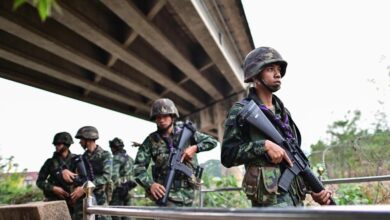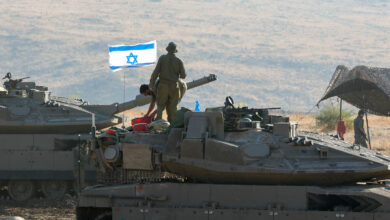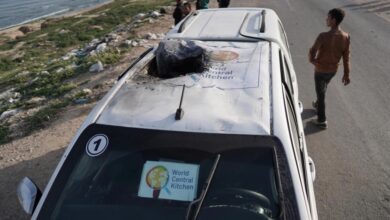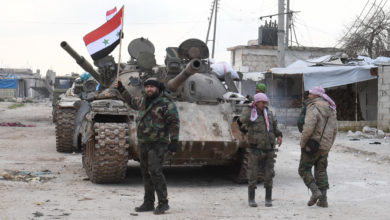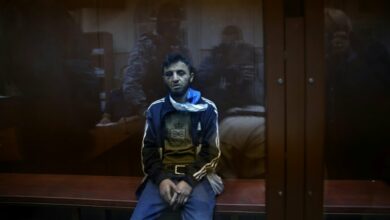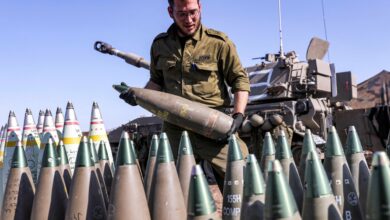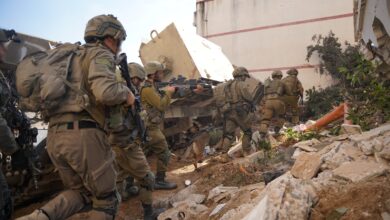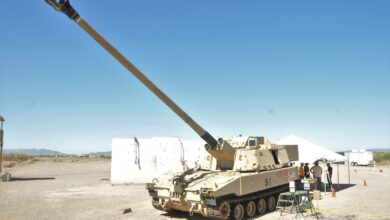Ethiopia PM Orders Riposte After ‘Attack’ on Army Camp in Restive Tigray
Abiy revealed on social media that the Tigray People's Liberation Front "attacked a military camp" and "tried to loot" military assets.
Ethiopia on Wednesday declared a state of emergency in Tigray after Prime Minister Abiy Ahmed said he ordered a military response to a deadly attack by the ruling party of the restive region on a camp housing federal troops.
A statement from Abiy’s office said the government made the declaration “recognizing that illegal and violent activities” in Tigray, a region locked in a long-running dispute with Addis Ababa, were threatening national sovereignty, constitutional order and peace and security.
It followed an announcement by Abiy on social media that the Tigray People’s Liberation Front (TPLF) “has attacked a military camp” in the northern region, and “tried to loot” military assets.
The attack resulted in “many martyrs, injuries and property damage,” Abiy said later in a five-minute address on state television, without providing details.
“Our defense forces… have been ordered to carry out their mission to save the country. The final point of the red line has been crossed. Force is being used as the last measure to save the people and the country,” said the Facebook and Twitter post.
It was not immediately clear what form the federal military response might take, or what the state of emergency declaration will entail.
But analysts and diplomats have been warning for weeks that the standoff between the federal government and the TPLF could spill over into violence.
BREAKING: Prime Minister @AbiyAhmedAli has ordered troops to take military action against Tigray regional forces, claiming forces loyal to Tigray's ruling TPLF party attacked a federal government military barracks and "crossed the red line." Much feared war is on the horizons.
— Zecharias Zelalem (@ZekuZelalem) November 3, 2020
“This war is the worst possible outcome of the tensions that have been brewing,” said William Davison, an analyst with International Crisis Group.
“Given Tigray’s relatively strong security position, the conflict may well be protracted and disastrous,” he said, adding it could send “shockwaves” into the wider Horn of Africa region.
Internet monitoring group Netblocks reported that internet appeared to have been cut in Tigray as of one am (2200 GMT Tuesday).
Abiy said on state TV that “traitorous forces” had turned on the military in the regional capital, Mekele, and the town of Dansha in western Tigray.
The assault on Dansha was “repelled” by security forces from Amhara region, which borders Tigray to the south, he added.
A separate statement from Abiy’s office accused the TPLF of dressing its soldiers in uniforms resembling those of the army of neighboring Eritrea to “implicate the Eritrean government in false claims of aggression against the people of Tigray.”
Tigray’s government said on regional state media that leadership and rank-and-file soldiers from the military’s Northern Command, based in Mekele, “have decided to stand with the Tigray people and the regional government”.
The statement also said Tigray had closed its airspace.
It was not possible to immediately corroborate the two sides’ statements.
A Widening Rift
The TPLF dominated politics in Africa’s second-most populous country for nearly three decades before Abiy came to power in 2018 on the strength of anti-government protests.
Under Abiy, winner of last year’s Nobel Peace Prize, Tigrayan leaders have complained of being unfairly targeted in corruption prosecutions, removed from top positions, and broadly scapegoated for the country’s woes.
Ethiopia was due to hold national elections in August, but the country’s poll body ruled in March that all voting would need to be postponed because of the coronavirus pandemic.
Lawmakers then voted to extend officials’ mandates — which would have expired in early October — but Tigrayan leaders rejected this and went ahead with regional elections in September that Abiy’s government deemed illegal.

Now each side sees the other as illegitimate, and federal lawmakers have ruled Abiy’s government should cut off contact with — and funding to — Tigray’s leadership.
In recent days, tensions have also risen over who controls federal military assets in Tigray.
The region is home to a large portion of federal military personnel and equipment, a legacy of Ethiopia’s brutal 1998-2000 border war with Eritrea, its northern neighbor.
The International Crisis Group, citing former Tigrayan officers, said in a report last week that Tigray “comprises more than half of the armed forces’ total personnel and mechanized divisions”.
Last week Tigray blocked a general appointed by Abiy from assuming a new posting, saying Abiy no longer had the authority to make such moves.
Playing With Fire
Tigrayan officials have said in recent days they would not initiate a military conflict.
“We will never be the first to shoot nor the first to blink,” Getachew Reda, a senior member of the TPLF, told AFP last week.
On Tuesday night, hours before Abiy’s announcement, Wondimu Asamnew, another senior Tigrayan official, told AFP the federal government was amassing troops on the southern border of Tigray — a claim that could not be independently verified.
“I think when it comes to military mobilization, it’s not child’s play. It can trigger all-out war… what they are doing is playing with fire,” Wondimu said.
“A small spark can ignite the whole region. So I think we are on the alert and I can assure you we are capable of defending ourselves.”


